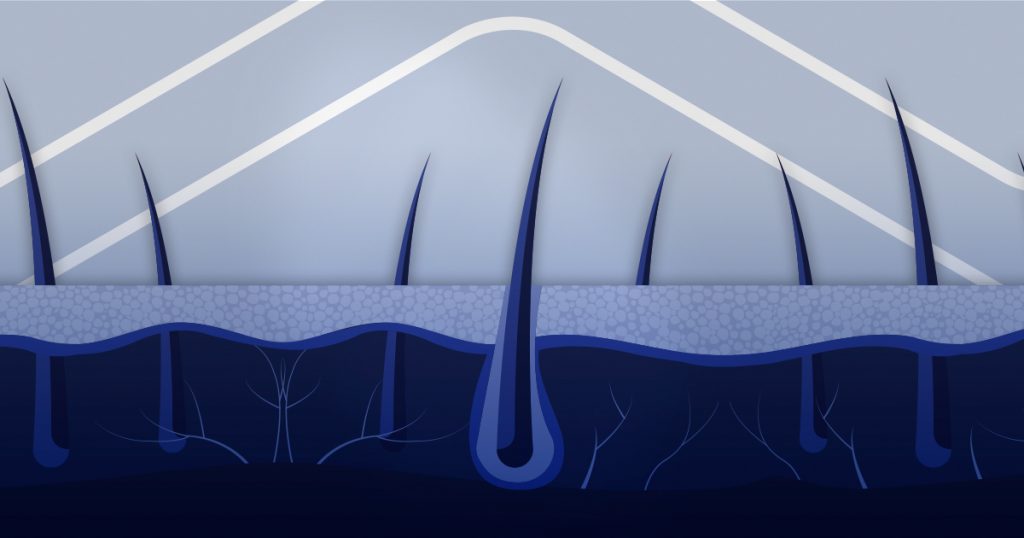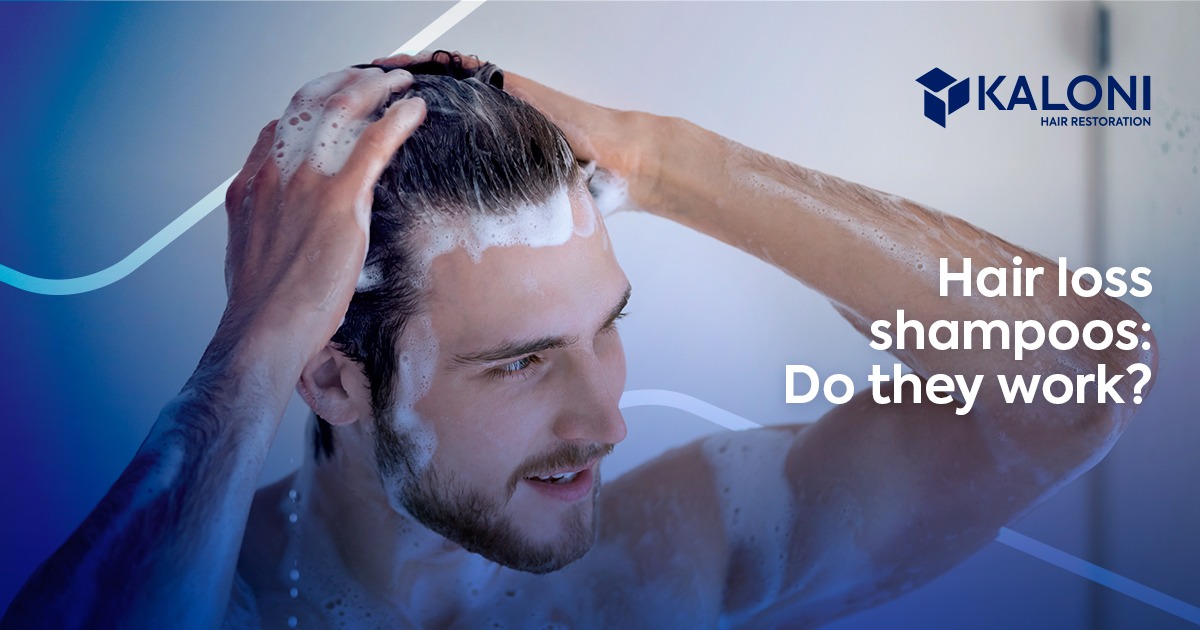How effective are anti-hair loss shampoos?
Table of Contents
It is easy to become overwhelmed by all the different brands that offer shampoos promising to stop hair loss. Some brands have been on the market for years, while others yet have come out with new and improved formulas. To know which product suits your needs the best, here are a few key aspects that you should keep in mind.
A solution for every problem
First of all, it is important to remember that hair loss may stem from a wide variety of causes:
- Telogen effluvium
- Genetic predisposition
- Hormonal imbalance
- Nutrient deficiency
- Hair pulled too tight
- Weakened hair shafts
- Autoimmune causes
It is important to find out what is causing the problem, to distinguish hair loss stemming from telogen effluvium, from hair loss caused by brittle hair shafts (something which is not always clear from the patient’s point of view), in order to treat the issue effectively and get to the root of the problem.
Shampoo: the hair care panacea
Usually, after identifying the first signs of hair loss, we start by looking for immediate solutions, from natural remedies containing eggs or coffee, to anti-hair loss shampoos available at the pharmacy or the supermarket. Only rarely do some people search on Google and buy pharmaceutical-grade or dermocosmetic products.
The problem is that using a product “blindly,” without knowing what is actually causing hair loss, or the properties or ingredients that your hair really needs, can end up being counterproductive. That is why it is so important that you talk to a specialist.
Remember that shampoo’s number one job is to keep your hair and scalp clean. When it comes to specialized shampoos, the product is expected to have more properties.

Besides cleaning, shampoo should also:
– Be gentle on your skin: it should not leave your hair feeling too dry or oily; it should improve your hair’s appearance, whether it is straight, curly, dyed, etc.; and it should adapt to every user’s needs, as well as their age and specific habits.
– Look and smell good: its color and packaging should be pleasant to the eye; it should lather in soft or hard water; it should be chemically and physically stable; it should have softening properties; and it should be biodegradable, or at least eco-friendly.
– Make a positive change with regard to your specific hair or scalp problems: it should help treat dandruff and seborrheic dermatitis; and it should help strengthen your hair and prevent hair loss.
The perfect formula
According to scientific research on the subject, the reciprocal relationship between cosmetic technology and medical therapy translates to advances in shampoo formulas. This has allowed cosmetic hair care products to offer the same efficiency and results as medication.
In other words, there is no single formula that can “fix” hair loss: it is necessary to find an integral treatment that combines various methods, depending on each patient’s specific needs. Thus, for instance, shampoo is only about 10% of an integral androgenetic alopecia treatment.
Some shampoos contain certain active ingredients that are clinically proven to treat brittle hair (some formulas contain biotin, minerals, amino acids, and botanical extracts) and are the perfect complement to hair loss medication.
Anti-hair loss Shampoo
As we mentioned in other posts, hair is a cumulus of proteins that pile up and push their way to the surface. We have also talked about how hair’s life cycle works. Remember that the follicular root, where hair is born, is located about 3 to 4 millimeters below the epidermis.

When you apply shampoo on your hair, it cannot reach the follicle, so it does not affect new hair growth directly. However, it does help keep the shaft and the scalp healthy, while also setting the foundation for other treatments to work efficiently. In addition, massaging shampoo onto your scalp activates blood flow, which, in turn, facilitates the supply of nutrients.
That is why shampoo alone cannot magically stop hair loss or help new hair to grow. Hair specialists recommend using them alongside other topical or orally administered medications. For instance, shampoo may help treat androgenetic alopecia in combination with vasodilating treatments (Minoxidil), vitamin complexes and supplements (biotin or arginine), or testosterone inhibitors (finasteride or dutasteride).
Indications: Use and frequency
How frequently you should wash your hair with anti-hair loss shampoo is one of the most frequently-asked questions by patients. More product does not necessarily mean better results. We will soon explore this subject in depth.
Broadly speaking, the most common recommendation is to wash your hair every day. Use a small amount, depending on your hair’s length, and massage the product onto the scalp with the pads of your fingers. Rinse off completely with lukewarm water, making sure to remove every last trace of shampoo.
Sometimes, it is suggested that patients alternate between a fortifying (anti-hair loss) shampoo and a sebum-regulating one.
So, then, do they really work?
In conclusion, we can say that specialized anti-hair loss shampoos help, not just to keep your scalp clean, but also to prevent damage to your hair shaft as well as hair loss caused by breakage. However, when it comes to addressing the root of the problem, the best thing to do is to find an integral treatment that offers an effective solution.
To find the perfect treatment for you, talk to our specialists at Kaloni. Book your online evaluation.


